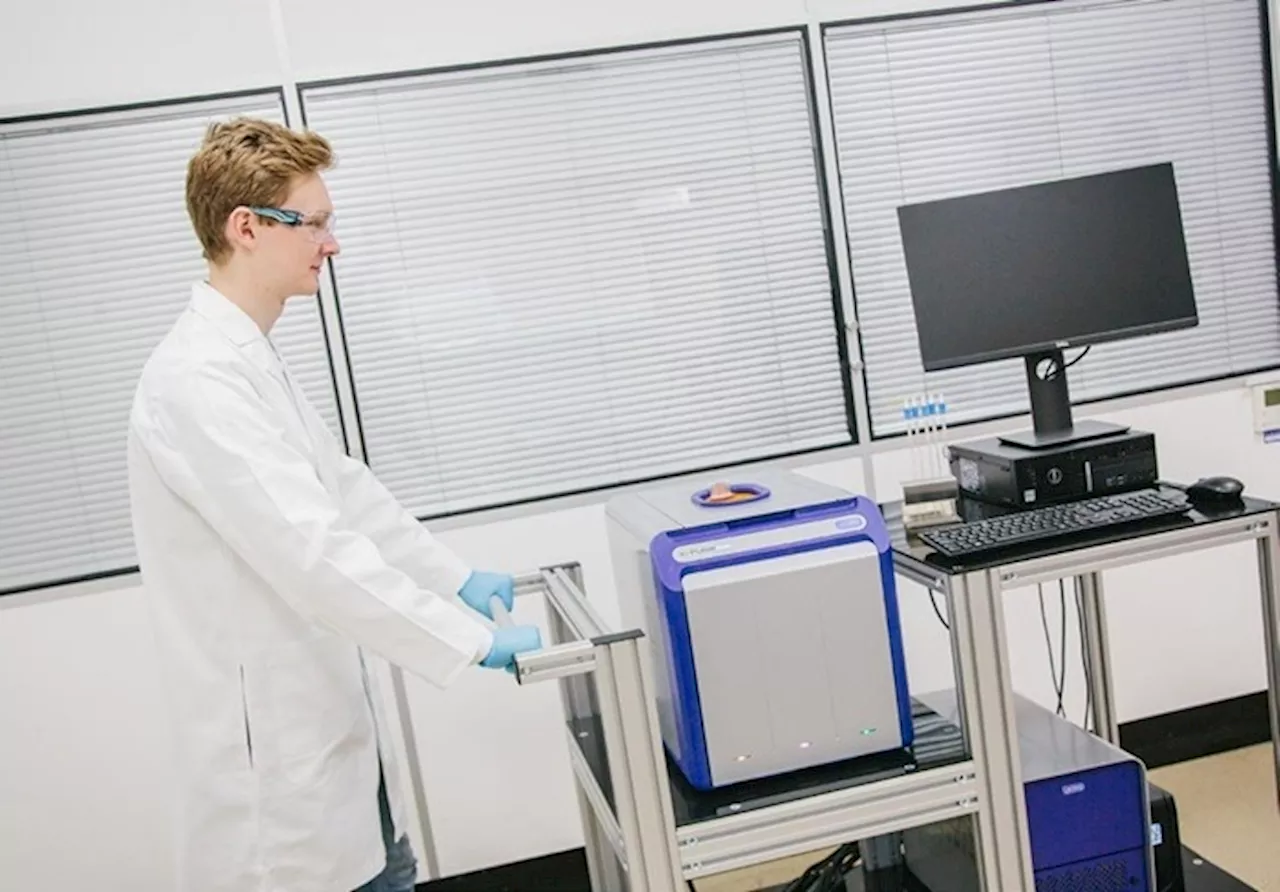This article explores the critical role of Nuclear Magnetic Resonance (NMR) spectroscopy inpharmaceutical development.
Sponsored Content by Oxford Instruments NMR Reviewed by Maria OsipovaAug 21 2024 Process development is key to identifying the optimal parameters used for synthesis, manufacturing, and stability testing. It is also key to generating the data required for the filing processes of many pharmaceutical regulatory bodies.
Figure 1. One-dimensional 1H stacked spectra of a reaction mixture before and after reaction. Image Credit: Oxford Instruments NMR For example, fluorine is a high-sensitivity NMR active nucleus frequently found to be more powerful for reaction monitoring than the more widely used hydrogen. Thanks to the less complex fluorine NMR spectra and the wider chemical shift dispersion, straightforward resolution of reactant and product signals is possible.
Knowing the identities of reactants and products is essential in drug development and production, as is understanding the reaction process and kinetics. Figure 3. Stacked series of one-dimensional 1H NMR spectra acquired during online monitoring of the reduction of 3-nitrobenzaldehyde to 3-nitrobenzyl alcohol. Image Credit: Oxford Instruments NMR
NMR Optimizing Synthesis Processes Real-Time Reaction Monitoring
United Kingdom Latest News, United Kingdom Headlines
Similar News:You can also read news stories similar to this one that we have collected from other news sources.
 Revolutionizing NMR: Bringing advanced spectroscopy from the basement to the benchtopThis article explores the revolutionary advancements in benchtop NMR instrumentation, which havebrought this sophisticated analytical technique out of specialized facilities and into everyday laboratories.
Revolutionizing NMR: Bringing advanced spectroscopy from the basement to the benchtopThis article explores the revolutionary advancements in benchtop NMR instrumentation, which havebrought this sophisticated analytical technique out of specialized facilities and into everyday laboratories.
Read more »
 Enhancing a strategy to reduce opioid overdose deathsIn a study published in Harm Reduction Journal, a team led by CUNY SPH researchers examined why Connecticut's good Samaritan laws aren't working as intended to reduce opioid deaths.
Enhancing a strategy to reduce opioid overdose deathsIn a study published in Harm Reduction Journal, a team led by CUNY SPH researchers examined why Connecticut's good Samaritan laws aren't working as intended to reduce opioid deaths.
Read more »
 Grid-Enhancing Technologies The Answer to Growing Power NeedsGrid-enhancing technologies offer interim solutions to meet the rising power demands, integrate renewables, and increase grid capacity while new infrastructure is developed.
Grid-Enhancing Technologies The Answer to Growing Power NeedsGrid-enhancing technologies offer interim solutions to meet the rising power demands, integrate renewables, and increase grid capacity while new infrastructure is developed.
Read more »
 Man who ate toast for five years inspires high-tech spoon enhancing flavours for dementia sufferersThe so-called Tasty Spoon is meant to give dementia sufferers a better quality of life by enhancing the flavours so they rediscover the joy of eating, which in turn could make them healthier.
Man who ate toast for five years inspires high-tech spoon enhancing flavours for dementia sufferersThe so-called Tasty Spoon is meant to give dementia sufferers a better quality of life by enhancing the flavours so they rediscover the joy of eating, which in turn could make them healthier.
Read more »
 Enhancing brain-computer interface performance through tactile and motor imageryIn a study recently published in the journal Cyborg and Bionic Systems, researchers from Zhejiang University have unveiled significant findings that could enhance brain-computer interface (BCI) technologies, marking a crucial step towards more intuitive neuroprosthetic control and advanced rehabilitation therapies.
Enhancing brain-computer interface performance through tactile and motor imageryIn a study recently published in the journal Cyborg and Bionic Systems, researchers from Zhejiang University have unveiled significant findings that could enhance brain-computer interface (BCI) technologies, marking a crucial step towards more intuitive neuroprosthetic control and advanced rehabilitation therapies.
Read more »
 Potential new approach to enhancing stem-cell transplantsA discovery by a three-member Albert Einstein College of Medicine research team may boost the effectiveness of stem-cell transplants, commonly used for patients with cancer, blood disorders, or autoimmune diseases caused by defective stem cells, which produce all the body's different blood cells.
Potential new approach to enhancing stem-cell transplantsA discovery by a three-member Albert Einstein College of Medicine research team may boost the effectiveness of stem-cell transplants, commonly used for patients with cancer, blood disorders, or autoimmune diseases caused by defective stem cells, which produce all the body's different blood cells.
Read more »
